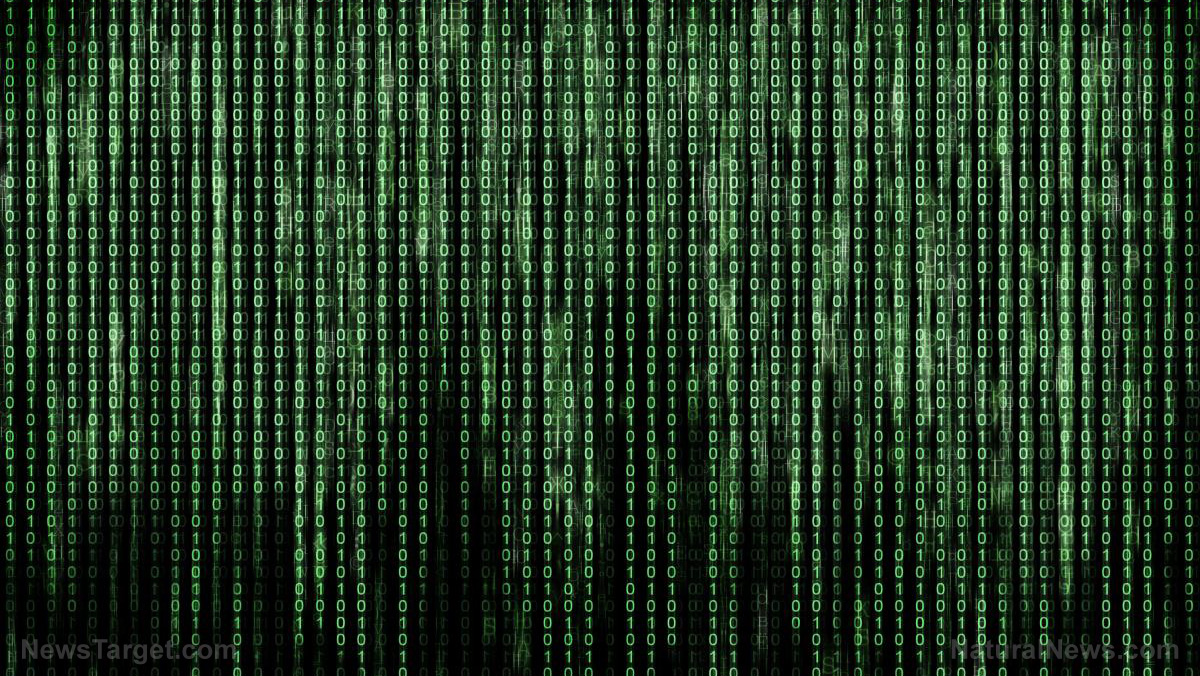EXCLUSIVE: The NSA is archiving all encrypted emails and transactions, knowing they will be able to decrypt most digital files in about 3 years, thanks to quantum computing
09/23/2019 / By Mike Adams

EXCLUSIVE ANALYSIS – All encrypted emails, files and hard drives that currently rely on 256-bit encryption (such as AES or RSA) may be retroactively broken by the NSA in the next three years, thanks to rapid advances in quantum computing recently announced by Google scientists.
The NSA is currently archiving all encrypted communications and storing the digital files on offline storage servers in its “Bumblehive” domestic spying facility in Utah. Currently these digital files cannot be broken because classical computing presents a strongly asymmetrical complexity problem that makes breaking encrypted files prohibitively time consuming and expensive. Files encrypted with 2^n bits currently present computational complexity that requires 2^n computer power to break. In other words, encrypting files is easy (linear), but breaking encryption is incredibly difficult (logarithmic).
But rapid advances in quantum computing transform the breaking of encryption from a logarithmic mathematical problem to a linear problem, collapsing the complexity to 2 * n instead of 2 ^ n. The enormity of this difference can only be appreciated when you do the math. Calculate 2 ^ 512, versus 2 * 512 and compare the answers. Quantum computing effectively transforms certain logarithmic computations into linear computations, and its best application is breaking encryption. (Quantum computing isn’t really “computing” at all, by the way. For a more detailed mathematical explanation of the hyper-dimensional, hyper-computational capabilities of quantum phenomena, read this explanation at Natural News.)
The NSA will likely be able to break all 256-bit encryption within about three years, according to admissions from Google scientists
What all this means is that within the next three years, according to a recently released paper published by Google scientists — who appear to be conducting research on a D-Wave quantum computing framework — quantum computers will exceed 256 qubits, allowing them to almost effortlessly crack all 256-bit encryption (but not all at once, they still have to pick and choose which files to crack). Roughly each year beyond that, the capabilities of these quantum computers will reportedly double, meaning that cracking 512-bit, 1024-bit or even 2048-bit encryption is just a few years away. This obviously has huge implications for military communications and global geopolitics.
This means the NSA will be able to retroactively break all the encrypted emails, files and other digital communications that it has surreptitiously hoovered up and stored on its servers.
Importantly, whatever information you’ve sent via encrypted email services may be retroactively broken by the NSA, transforming your encrypted emails and files into plain text files. This is true across all the encrypted emails and files you’ve sent over the last decade or more.
None of this means encrypted email services have done anything wrong. Encrypted email providers like ProtonMail and HushMail have done an excellent job of providing secure communications for individuals and businesses. But the emergence of quantum computing sooner or later renders classical encryption obsolete. This also means, by the way, that the NSA will be able to spoof or break all cryptocurrency transactions within just a few years. In fact, your entire crypto wallet could be drained by the NSA in mere seconds, almost effortlessly, if they choose to target you with such an action. (The “crypto” in cryptocurrency means cryptography. Without cryptography, there is no cryptocurrency. And Google — which is little more than a tech front for the NSA — will soon render classical cryptography obsolete.)
The weaponization of quantum computing against human freedom
The high economic cost of quantum computing systems means the NSA will likely direct this digital weapon at targets with the highest payoff — such as the digital communications of members of Congress or U.S. Supreme Court justices who can be pressured into supporting abortion, gun control and the expansion of government tyranny.
The only thing protecting your past encrypted communications, at that point, will be the NSA’s relative lack of interest in your emails, since they probably have bigger targets to attack first. Fortunately for us all, quantum computers cost millions of dollars (at the moment, at least). So there is, at some level, an economic barrier to the NSA buying and deploying entire server farms of these systems. This means their capacity to break encrypted files is strictly limited, at least until quantum computers become several orders of magnitude more affordable.
Nevertheless, if you’ve previously sent encrypted emails or files, there’s nothing you can do to go back and erase those emails or files, since they’ve already been copied by the NSA into a massive (and highly illegal) database, thanks to laws passed after the staged 9/11 attacks that were engineered to launch a massive expansion of the surveillance state.
Everything you’ve sent over the internet in encrypted form — including details of your purchases from encryption-protected websites and https / SSL communications — will be an open book to the NSA in just a few years. Over time, quantum computers will become less expensive, meaning the NSA will, over time, be able to retroactively break an increasingly large number of encrypted files. The only safe assumption here is to assume that ALL encrypted files possessed by the NSA will eventually be broken, very likely within the next decade if not sooner.
The NSA will, of course, weaponize this technology and use it to destroy its political opponents while rapidly expanding its own power and reach. Quantum computing will be used not to set humanity free but to enslave humanity to centralized, digitized authoritarian rule. The laws of physics, in other words, will be turned against humanity to create a hyper-dangerous, authoritarian techno-fascist regime that rules the world.
Denial is not a working strategy
In covering quantum computing, we’ve noticed a strong pattern of denial across independent media, which seems to dislike the idea that cryptocurrency, as currently structured, will likely be made horrifyingly vulnerable in just a few years by these advances in quantum computing. Many promoters of Bitcoin, in particular, have long operated in the dream world of self-delusion rather than reality, telling themselves that Bitcoin would rise to $1 million and take over global banking, for example. In truth, Bitcoin is absurdly slow to clear transactions, and the very concept of blockchain is in some ways self-defeating, since widespread use would make the sheer size of the blockchain ledger itself far larger than the storage capabilities of mobile devices. The more people use Bitcoin, the bigger the blockchain becomes in terms of sheer storage and computational requirements to update stored wallets.
That doesn’t mean cryptocurrency is a bad thing, of course. Any technology that achieves decentralization and challenges the pure evil of central banks is a good technology for humanity. Regardless of Bitcoin’s true origins — which remain shrouded in secrecy and myth — the underlying technology core of Bitcoin, as currently structured, looks like it’s about to be rendered potentially obsolete (unless radical changes are made, see below). The fact that China is also working feverishly on quantum computing means that U.S. interests cannot abandon the project, or they risk being beaten in the “quantum supremacy” game by a powerful geopolitical enemy.
Once quantum computing is achieved at the 256-bit level, the technology will quickly be stolen, copied or sold to other nations, and the deployment of 256-qubit systems will become widespread within a few years. It won’t be long before encryption breaking becomes ubiquitous, and all the old secrets protected by 256-bit encryption will be exposed to the surveillance state.
How Bitcoin and other crypto might survive the emergence of quantum computing
If Bitcoin (or any cryptocurrency) hopes to survive, it must develop a new encryption method that does much more than merely adding bits to the encryption keys. Shifting to 512-bit encryption is only a delaying tactic, since a 512-qubit quantum system won’t be far behind the achievement of 256-qubit computing.
Fortunately, the people behind Bitcoin and other cryptos are truly some of the smartest people in the world, and they may yet develop new cryptography solutions that can out-pace quantum computing in ways we can’t currently imagine. The incorporation of personal biometrics into encryption algorithms might be one solution. So-called “quantum encryption” is another possibility, but widespread deployment of that technology would require new hardware on all computing platforms (you have to read the spin states of atomic elements), making this solution less than feasible, given current technology.
My guess is that the very smartest encryption people involved in the crypto world are already well aware of the risk that quantum computing poses to the crypto backbone, and they are already exploring possible solutions. So I don’t think quantum computing automatically spells the end of cryptocurrency; I think it will force crypto to re-engineer itself in radical ways. Yes, there is a very real risk that some cryptocurrencies might not adapt quickly enough and could become obsolete, but the smartest cryptos will likely find a way to adapt and overcome. (Never underestimate the intelligence of the people who built Zcash, as a general rule.)
Personally, I hope crypto survives, and I hope we will still find ourselves living in a world where citizens can have secrets that can’t be read by government regimes. Because the alternative to that — a world where governments can break all encryption — is a very dangerous, dark, evil world in which no human can truly be free. Sadly, quantum computing research is marching us in precisely that direction, and there has never been a game-changing technology that wasn’t eventually used to murder, brainwash or enslave humanity.
Watch more videos on quantum computing, cryptocurrency and liberty at Brighteon.com, the free speech alternative to YouTube.
Tagged Under: computing, emails, encryption, Google, information technology, NSA, PGP, privacy, quantum computing, secrets, surveillance
RECENT NEWS & ARTICLES
COPYRIGHT © 2018 TECHGIANTS.NEWS
All content posted on this site is protected under Free Speech. TechGiants.news is not responsible for content written by contributing authors. The information on this site is provided for educational and entertainment purposes only. It is not intended as a substitute for professional advice of any kind. TechGiants.news assumes no responsibility for the use or misuse of this material. All trademarks, registered trademarks and service marks mentioned on this site are the property of their respective owners.



















